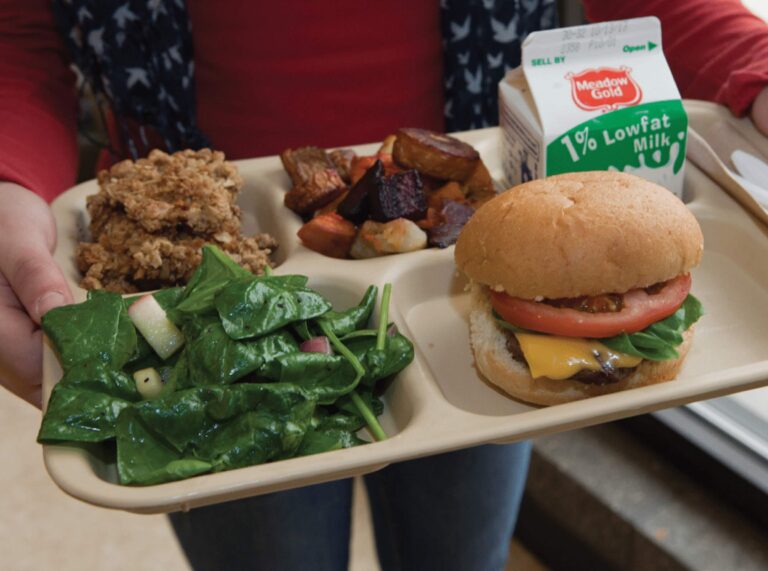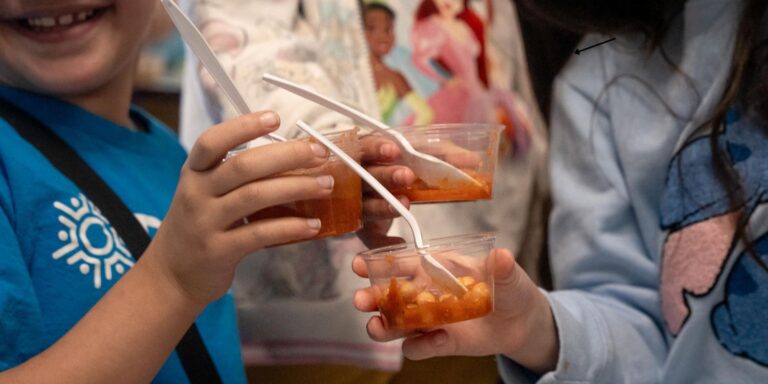August Recess, Public Charge, CNR, And Other Policy Updates
As Congress takes August recess, FoodCorps’ policy team prepares for CNR and shares our take on policy changes like the public charge rule.
Join our corps! Applications for 2026-2027 are now open. Apply by March 30.
As Congress takes August recess, FoodCorps’ policy team prepares for CNR and shares our take on policy changes like the public charge rule.

For the policy team here at FoodCorps’ D.C. office on Capitol Hill, we are in the midst of Congress’ “August recess.” Each August, Congress takes about a month-long break from Washington, D.C. to go back home and meet with constituents and stakeholders in their states and districts.
But this month isn’t actually much of a break at all. Lawmakers are busy holding town halls and other events to meet with their constituents. And at FoodCorps, we are busy gearing up for the fall, when Congress is going to take a close look at what to do about the laws that govern child nutrition and school meals.
As Congress takes up child nutrition reauthorization, or CNR (read our post from earlier this year for a CNR refresher), we are working to build support for a few key bills that will help connect more kids to healthy food in school.
The goal for these bills — often referred to as “marker bills” — is not that they get signed into law as individual, standalone pieces of legislation. Rather, our goal is to convince lawmakers to include these bills’ contents into a larger, comprehensive set of changes that is signed into law in the broader child nutrition package.
What bills are we backing?
Through our work on the ground, we see firsthand how farm to school strategies get more kids eating healthy, fresh, delicious food while also supporting local farms and economies. We’re proud to be working with our partners at the National Farm to School Network and National Sustainable Agriculture Coalition to advance two key bipartisan bills that will accelerate farm to school efforts:
We also know that in order to serve healthier meals with local products, many schools need upgraded equipment and infrastructure to process and prepare those meals. The bipartisan School Food Modernization Act establishes a grant, loan guarantee, and technical assistance program to help schools update and modernize their kitchens to provide healthy and appealing meals to kids.
Take action to support these bills!
Contact your elected officials and ask them to support these two farm to school bills.
The Trump administration recently released a harmful new “public charge” policy that will force millions of immigrants to choose between accessing vital food, health, and housing benefits for their families and a pathway to permanent residency. We opposed this policy when first proposed back in October and joined a strong coalition of over 1,500 groups to stand united against the proposal. We submitted comments in opposition to the proposed rule and encouraged our community to do the same.
Public charge is a test the government uses to decide if an immigrant can become a permanent resident. Prior to the Trump administration’s rule change, only a narrow set of public benefit programs, primarily cash assistance, could be used in applying this test. The new rule expands the test to include Supplemental Nutrition Assistance Program (SNAP, or food stamp) benefits, as well as housing and health care assistance.
In addition to these new programs specifically added to the public charge test, we are concerned with the documented “chilling” effect this policy will have on immigrants’ participation in other safety net programs. The practical effect of this new policy is to force immigrant families to choose between feeding, housing, and caring for their families or pursuing permanent status.
Unfortunately, the Trump administration purposefully ignored the majority of commenters who were against this proposed rule and released their final rule this week. In the hours after the policy was announced, some advocates and state attorneys general declared their intent to file a legal challenge to the final rule.
Last month, the U.S. Department of Agriculture announced a proposal that would limit eligibility for SNAP benefits. Because children in households that participate in SNAP are automatically eligible for free school meals, the proposal could also jeopardize access to those meals for an estimated 500,000 kids.
FoodCorps opposed this move when the USDA first announced it. In the coming weeks, we will encourage our community to submit comments in opposition to this proposed rule. Sign up for our advocacy alerts to stay in the loop.

3 Reasons We Need School Meals for All

Mindful Tasting: Eating with All 5 Senses

Our 2025 Child Nutrition Policy Year in Review